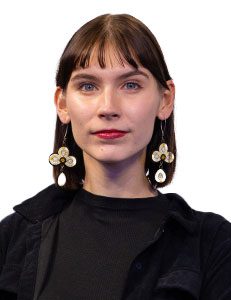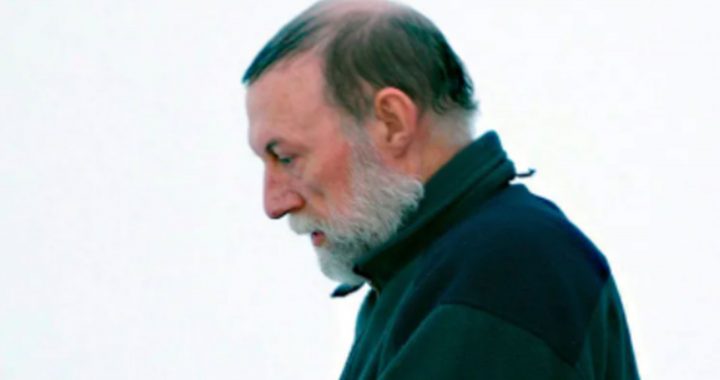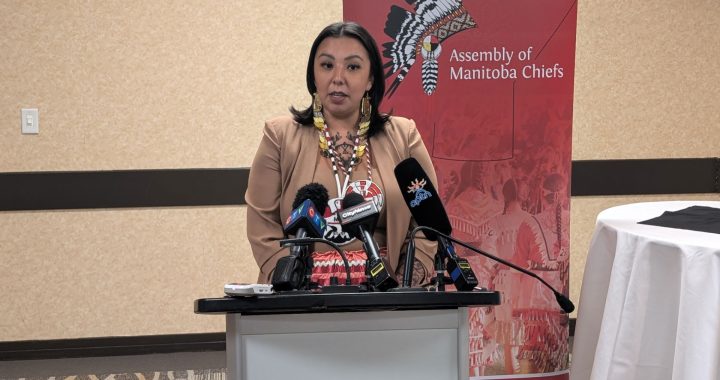Filmmaker Sonya Ballantyne, who grew up in the Misipawistik Cree Nation in northern Manitoba, remembers the precise moment she became a wrestling fan.
“When I was a little girl, I encountered The Death Tour,” Ballantyne said during an interview with APTN News. “I met the wrestler Adam Copeland, who wrestles as Edge, and I remember being so terrified of him because I never really met that many white folks, and so having this six-foot tall white guy with big blue eyes, I was like, ‘oh my god no!’
“It was really cool because it was the first time I had ever met a wrestler.”
Decades later, Ballantyne’s first feature-length film is a documentary about the same tour that hooked her on the sport.
Co-directed by Ballantyne and Stephan Peterson, The Death Tour follows four hopeful wrestlers, Sarah McNicoll, a.k.a “McKenrose the Scottish Warrior”, Sean Dunster, a.k.a “Massive Damage”, Sage Morin, a.k.a “The Matriarch”, and Dez Loreen, a.k.a. “The Eskimofo.”
Throughout the film, the wrestlers brave ice roads and isolation, as they travel to remote Indigenous communities across northern Manitoba.
In the 1980s, Italian-Canadian wrestling promoter, Tony Condello, founded the tour now seen as a rite of passage by many in the scene.
Chris Jericho, the film’s executive producer, is among the many wrestling legends who got their start on the Death Tour.
“A lot of the issues we talk about in the film specifically look at how the communities live, and how Tony’s tour is often the only non-community-organized event that comes up there,” Ballantyne said.
Wrestling with the past
Morin (The Matriarch), is a wrestler from the Saddle Lake Cree Nation in central Alberta. She turned to the sport on her healing journey, following the death of her son.
In 2013, her two-year-old son Geo was killed by a drunk driver who crashed into a restaurant her family was dining at.
The Edmonton-based promotion, Monster Pro Wrestling, held a tribute show for the family. Years later, they’d welcome Morin into the ring, after Dunster, a promoter, asked if she wanted to get involved.
She quickly chose “The Matriarch” as her wrestling alias.
“I wanted to have a lot of kids, and I ended up being a wrestler instead,” Morin said over Zoom. “As Indigenous Peoples, the strongest in our society is without a doubt the matriarch, and I right away knew that I wanted to… not just be a wrestler who was Indigenous, but I wanted to be an Indigenous wrestler and have my identity right there at the forefront.”
Growing up in Inuvik, N.W.T., Loreen, “The Eskimofo”, dreamed of becoming a wrestler. However, confined by northern geography, he never expected to go pro.
“We were really remote. Wrestling had only come to our community one time, and it was fly-in, and so it wasn’t going to come back. So, we kind of figured we were going to have to teach ourselves,” Loreen said. “I told people that I wanted to start it up and they sent us a boxing ring. It was hard to learn in that, but that’s what we learned to wrestle in.”
In 2019, he founded a promotion called Totally Arctic Wrestling to bring the sport to the north. It has since become a hub, attracting wrestling personalities from near and far.
Building community connections
Outside the ring, wrestlers on the Death Tour double as role models to students, presenting on topics like bullying, drugs and mental health.
Midway through the film, the tour arrives in a community grappling with recent youth deaths by suicide.
For both Morin and Loreen, connecting with students left a lasting impression.
“Thinking about the connections that we made with the youth, it’s something that I really hold near and dear to my heart,” Morin said. “Last night, when we watched the film in theatres, I was there just crying. I had to go up on stage with mascara all over my face after.”
As the cast and crew gear up for a cross-country screening tour, Ballantyne reflects on the tour’s generational legacy on Indigenous communities.
“It’s about underdogs overcoming impossible odds,” she said. “I think that’s why Indigenous people really connect with wrestling, specifically professional wrestling because we have also been underdogs who have persevered over insurmountable odds.”
The Death Tour screens in Winnipeg on Friday at the Dave Barber Cinematheque and plays at theatres across Canada throughout August.











